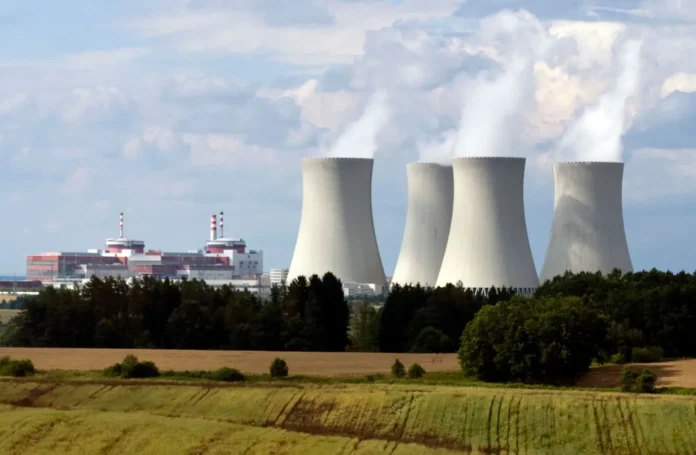The United States and Turkey are reportedly in talks for American companies to build nuclear reactors in Turkey — an effort Washington claims will help Ankara shift away from Russian nuclear supply. The talks come as the U.S. House of Representatives weighs legislation to sanction Russia’s state-owned nuclear monopoly, the Rosatom Corporation, triggering requirements for the Biden administration to impose sanctions on Turkish entities currently pursuing nuclear cooperation with Moscow.
The talks between Washington and Ankara center on prospective U.S. exports of large nuclear power reactors and small modular nuclear reactors to Turkey, according to a Turkish energy official. The U.S. ambassador to Turkey, Jeff Flake, also confirmed to Reuters, “We’re working with [Turkey] to try to lessen their dependency [on Russia] in whatever ways that we can.”
Meanwhile, Congress is preparing sticks to brandish alongside the carrot of nuclear cooperation.
On May 16, the House Foreign Affairs Committee passed Europe Subcommittee Chairman Thomas Kean’s (R-NJ) Rosatom Sanctions Enforcement Act (H.R. 8046), which aims to “effect a permanent decoupling from the Russian nuclear industry.” In essence, the legislation would force a U.S. and global wind-down of business with Rosatom, which remains a key Kremlin revenue generator amid Russia’s illegal war against Ukraine. The legislation would require the Biden administration to sanction Rosatom and “its affiliates and subsidiaries…[and] authorize secondary sanctions on any foreign person engaged in significant transactions with Rosatom.”
If passed, the legislation could affect a multi-billion dollar Turkish-Russian nuclear project.
In 2010, the government of Turkey and Rosatom signed a joint agreement establishing the Russian-run Akkuyu Project Company to design, build, and operate four nuclear power plants in Turkey’s Mersin province. The Akkuyu site and nuclear plants are completely financed and owned by Rosatom. Once they are operational in 2026, the Russian parent company will have operating and maintenance rights over the facility for 60 years (including the supply of fuel), before transferring ownership to the state-run Turkish Atomic Energy Authority (TAEK). The plants will generate approximately 10 percent of Turkey’s entire electricity demand.
The Rosatom Sanctions Enforcement Act authorizes the Biden administration to waive sanctions until 2032 for countries that are actively working to eliminate business with Rosatom, as Washington hopes Ankara will do. U.S.-Turkish nuclear cooperation would likely necessitate waivers since Washington could not legally pursue nuclear cooperation with Turkish entities sanctioned for doing business with Rosatom.
It remains unclear how Washington plans to avoid sanctions on Turkey’s cooperation with Russia after 2032 since the Akkuyu plants will remain in Russian hands and subject to Rosatom servicing well past this date.
According to Rosatom’s CEO, Alexei Likhachev, “Americans” recently seized $25 billion earmarked for the Akkuyu project, meaning U.S. financial sanctions against Russia had resulted in seized or frozen funds. While the administration is taking quiet steps to curb Russia’s funding of the project, it can do better.
Before providing any nuclear assistance, the Biden administration should urge Turkey to use all available legal avenues to disentangle Russian financing and ownership of the Akkuyu facility. In parallel, the administration should more effectively wield the threat of potential U.S. sanctions against Turkish-Russian nuclear ties as it attempts to assist Ankara in moving away from Moscow.
U.S. Considers Nuclear Cooperation With Turkey as Congress Tees Up Sanctions




